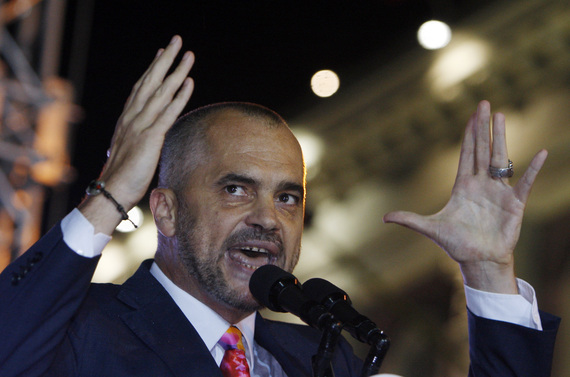
After 18 months of debate and delay, advocates for reform in Albania
released a collective cheer in late July when parliament approved constitutional amendments
that pave the way for meaningful changes to the judiciary. The
government and opposition, long at each other’s throats, seemingly cast
their differences aside for the good of the state.
On paper, the
amendments and legal changes they allow are steps in the right direction
for a country where criminals, politicians and criminal-politicians
have long influenced the courts. The proposed vetting of judges and
prosecutors and reviewing of their finances should help shield the
judiciary from corruption and organized crime.
In practice,
however, the impact of the reform remains in question because, rather
than having grown from within, foreign governments unabashedly imposed
the changes from abroad. International experts helped craft the package
and the U.S. and European Union shepherded it through approval. The
vetting will include reviews by an international committee.
The EU made passage of the package a requirement for Albania to begin accession talks with Brussels. The outspoken US ambassador threatened “grave and long-term” consequences for political leaders who blocked the reform.
Parliament’s
unanimous vote for the amendments reveals the power of Western capitals
and not the enlightened solidarity of Albania’s political leaders.
Despite overwhelming popular support for reform, the political elite
will largely suffer from, and therefore resist, changes that challenge
nepotism, cronyism and back-room deals.
The
international focus on institutions over individuals offered a welcome
change for post-Communist Albania; the US and EU learned that bolstering
one or another political force contributes to Albania’s unhealthy
tradition of the all-powerful state. But the arm-twisting means that
sustained attention to corruption is needed for the reform to have
teeth.
That means
holding Prime Minister Edi Rama’s feet to the fire, challenging him to
make anti-corruption more than a mantra. This is especially important
after the US and EU forcefully challenged last-minute efforts by the
opposition to block the reform.
 Albanian Prime Minister Edi Rama © Reuters
Albanian Prime Minister Edi Rama © Reuters
Rama has repeatedly argued that
the system in Albania, and not the people, is to blame. The laws of
that system are slowly changing so will he push Albanians to also
change? Amending laws is easier than ensuring their enforcement. Vetting
and financial reviews alone won’t alter a political culture infused
with the nectar of opportunistic rule.
The
internationally-mandated constitutional amendments, hopefully followed
by new laws, set the stage for positive change. But they also show how
far Albania has to go.
Fred Abrahams is the author of Modern Albania: From Dictatorship to Democracy (NYU Press, 2015)
No comments:
Post a Comment